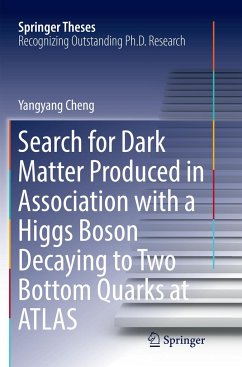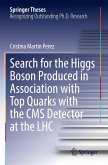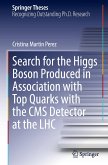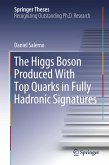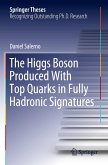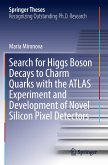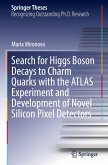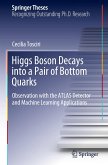This thesis reports on the search for dark matter in data taken with the ATLAS detector at CERN's Large Hadron Collider (LHC). The identification of dark matter and the determination of its properties are among the highest priorities in elementary particle physics and cosmology. The most likely candidate, a weakly interacting massive particle, could be produced in the high energy proton-proton collisions at the LHC.
The analysis presented here is unique in looking for dark matter produced together with a Higgs boson that decays into its dominant decay mode, a pair of b quarks. If dark matter were seen in this mode, we would learn directly about the production mechanism because of the presence of the Higgs boson. This thesis develops the search technique and presents the most stringent production limit to date.
The analysis presented here is unique in looking for dark matter produced together with a Higgs boson that decays into its dominant decay mode, a pair of b quarks. If dark matter were seen in this mode, we would learn directly about the production mechanism because of the presence of the Higgs boson. This thesis develops the search technique and presents the most stringent production limit to date.

